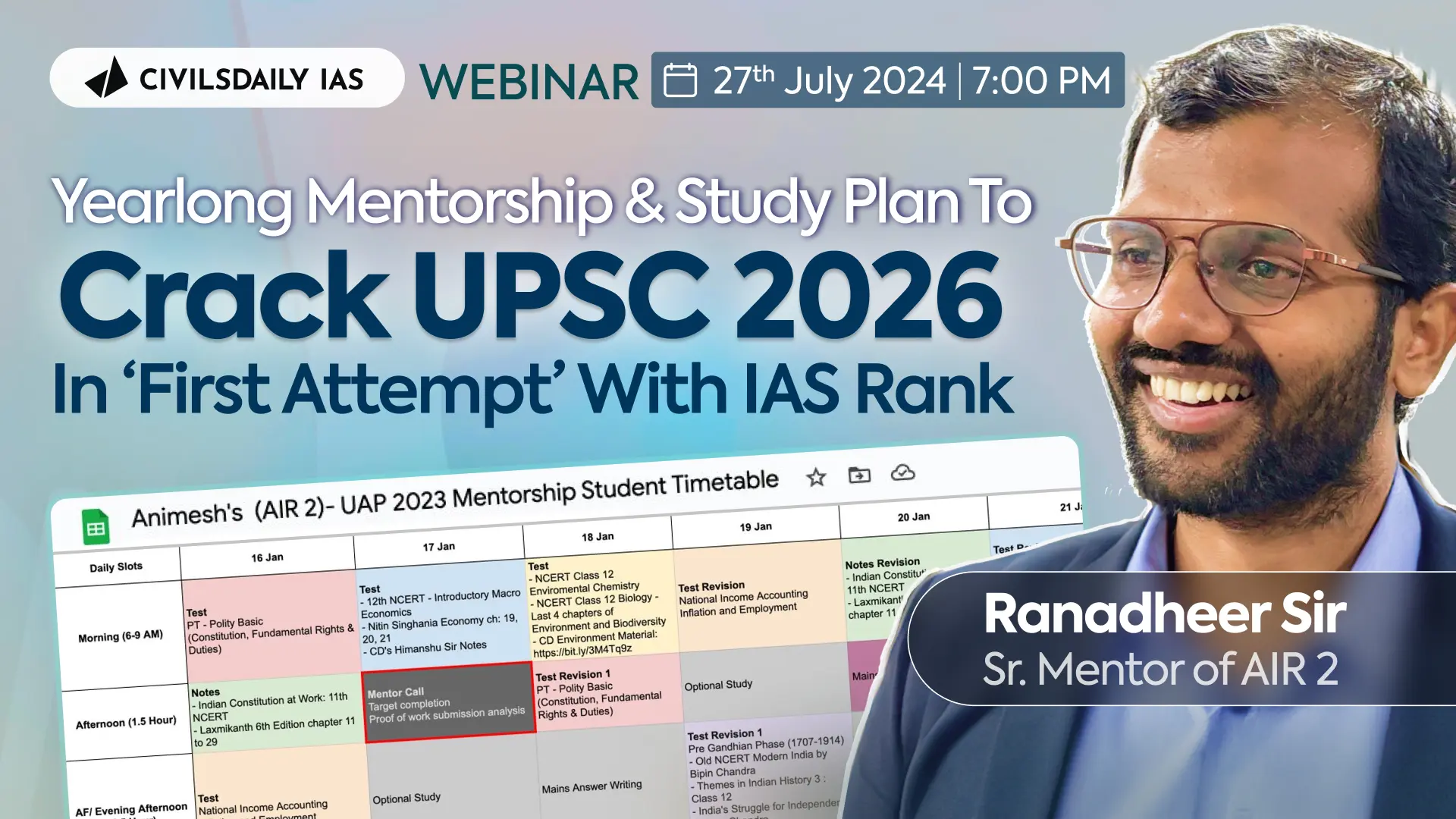Note4Students
From UPSC perspective, the following things are important :
Prelims level: Provisions for the President/Governors' address
Mains level: President/Governors' address
Today, with the first day of the Budget Session of Parliament, Hon’ble President will address a joint sitting of the two Houses.
President’s or Governor’s Address
- Commonly referred to as the President’s or Governor’s Address, they are a constitutional requirement.
- The Constitution gives the President and the Governor the power to address a sitting of the legislature. The special power is with regard to two occasions.
- The first is to address the opening session of a new legislature after a general election. The second is to address the first sitting of the legislature each year.
- A session of a new or a continuing legislature cannot begin without fulfilling this requirement.
- When the Constitution came into force, the President was required to address each session of Parliament.
- So during the provisional Parliament in 1950, the President gave an address for all three sessions. At the suggestion of Speaker G V Mavalankar, the first Constitutional Amendment in 1951 changed this position.
- Besides being a constitutional requirement, the President’s or Governor’s Address is keenly watched as it outlines the government’s policy agenda and stand on issues.
What procedures follow the address?
- After the President or Governor delivers the address, a debate takes place not only on the contents of the address but also the broad issues of governance in the country.
- This then paves the way for discussion on the Budget.
Significance of the address
- The President’s Address in India is mirrored on the British system.
- During the framing of the Constitution, B R Ambedkar drew a similarity between the President and the monarch under the English system.
- He said the President “is the Head of State but not of the executive. He represents the nation but does not rule the nation.
- He is the symbol of the nation. His place in the administration is that of a ceremonial device of a seal by which the nation’s decisions are made known”.
- The Constitution binds the President and the Governor to act on the aid and advice of the Council of Ministers of the Union and state governments respectively, on a majority of issues.
- Therefore, the speech that the President or the Governor reads before the legislature is the viewpoint of the government and is prepared by it.
Are there parallels in other countries?
- Similar provisions exist in other democracies. In the United States, it is referred to as the “State of the Union”.
- The phrase comes from an article in the US Constitution which specifies that the President from time to time give to Congress information of the State of the Union and recommend measures as he shall judge necessary and expedient.
- In the United Kingdom, it is referred to as the Queen’s Speech and is part of the ceremony to mark the formal start of the parliamentary year.
What is the content of the President’s or Governor’s address?
- During the making of the Constitution, an unsuccessful attempt was made to bring some specificity to the content of the President’s Address.
- The President’s speech follows the convention of the British system, where it contains legislative and policy proposals that the government intends to initiate.
- The speech also recaps the government’s accomplishment in the previous years. The contents of the speech are put together by aggregating inputs from various ministries of the government.
Is the text of the speech binding?
- The President or a Governor cannot refuse to perform the constitutional duty of delivering an address to the legislature.
- But there can be situations when they deviate from the text of the speech prepared by the government.
- So far, there have been no instances of President doing so. But there has been an occasion when a Governor skipped a portion of the address to the Assembly.
- In 1969, the Governor of West Bengal skipped two paragraphs of the address prepared by the United Front government.
- The skipped portion described as unconstitutional the dismissal of the first United Front government by the Congress-ruled central government. The issue was then debated in Parliament.
- The Opposition was critical of the Governor’s conduct and moved a motion disapproving it. But the motion was ultimately defeated.
How have members responded to the addresses over the years?
- The conduct of MLAs during the address has sometimes been an issue.
- The Governor’s speech in state legislatures has routinely been interrupted.
- In Parliament, the first instance of interruption of a President’s speech happened in 1963; President Sarvepalli Radhakrishnan was speaking when some MPs interrupted him.
- The Lok Sabha took note of the incident and a reprimand was issued to the MPs.
- Over the years, political parties have resolved to treat the President’s Address sacrosanct and agreed not to interrupt it.
Get an IAS/IPS ranker as your 1: 1 personal mentor for UPSC 2024
